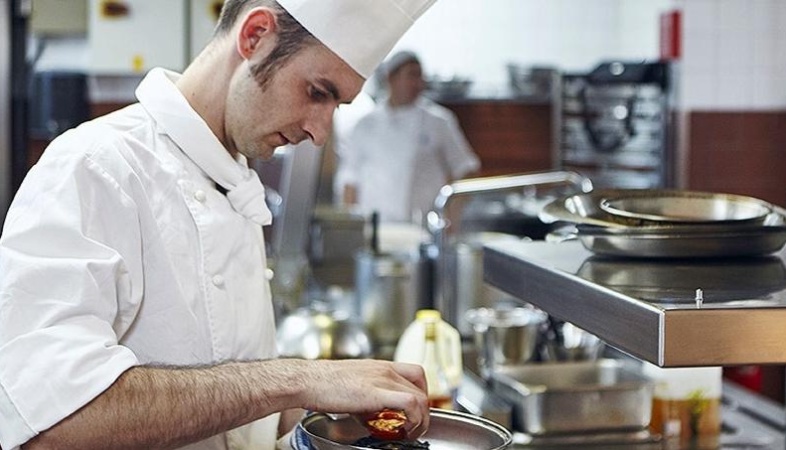Digital Marketing for Restaurants: Leveraging Online Platforms to Drive Foot Traffic and Sales
Digital marketing offers a plethora of opportunities for restaurants to engage with their target audience, build brand awareness, and drive conversions.

In today's digital age, an effective online presence is
essential for restaurants looking to attract customers, increase foot traffic,
and boost sales. Digital marketing offers a plethora of opportunities for
restaurants to engage with their target audience, build brand awareness, and
drive conversions. In this article, we'll explore strategies for leveraging
online platforms to maximize the marketing efforts of restaurants and achieve
business growth.
1. Building a Strong Online Presence: The foundation of any successful digital marketing strategy for restaurants is a robust online presence. This includes having a user-friendly website that showcases the restaurant's menu, location, opening hours, and contact information. Additionally, restaurants should claim and optimize their profiles on popular review sites such as Yelp, TripAdvisor, and Google My Business to ensure accurate and up-to-date information is available to potential customers.
2. Social Media Marketing: Social media platforms like Facebook, Instagram, Twitter, and TikTok offer restaurants powerful tools for engaging with customers and promoting their offerings. Restaurants can use these platforms to share mouth-watering photos and videos of their dishes, run targeted advertising campaigns, and interact with followers through comments, messages, and live streams. By maintaining an active and engaging presence on social media, restaurants can stay top-of-mind with their audience and drive traffic to their physical location.
3. Email Marketing: Email marketing is another effective tool for restaurants to connect with customers and drive repeat business. Restaurants can build an email list by encouraging customers to sign up for newsletters, promotions, and loyalty programs. Once they have a subscriber base, restaurants can send out regular emails with updates on menu specials, events, and promotions, as well as exclusive offers and discounts to incentivize repeat visits.
4. Online Ordering and Delivery: With the rise of food delivery apps like UberEats, DoorDash, and Grubhub, offering online ordering and delivery services has become essential for restaurants to stay competitive. Restaurants can partner with these platforms to reach a wider audience and provide convenient options for customers to enjoy their favorite dishes from the comfort of their own homes. Additionally, restaurants can also develop their own branded mobile apps or websites for online ordering and delivery to maintain control over the customer experience and avoid hefty commission fees.
5. Search Engine Optimization (SEO): Optimizing their website and online content for search engines is crucial for restaurants to improve their visibility and attract more customers. By incorporating relevant keywords, local search terms, and location-based tags into their website copy, menus, and blog posts, restaurants can increase their chances of appearing in search engine results when potential customers are looking for dining options in their area. Additionally, encouraging satisfied customers to leave positive reviews and ratings can also boost a restaurant's search engine rankings and credibility.
6. Influencer Marketing: Collaborating with influencers and food bloggers can be an effective way for restaurants to reach new audiences and generate buzz around their brand. By inviting influencers to dine at their restaurant and share their experience with their followers, restaurants can tap into their influencer's loyal fan base and benefit from their credibility and influence. Offering complimentary meals, exclusive tastings, or behind-the-scenes tours can incentivize influencers to create engaging content that showcases the restaurant in a positive light.
Digital marketing offers restaurants a wealth of opportunities to connect with customers, drive foot traffic, and increase sales. By leveraging online platforms such as social media, email marketing, online ordering and delivery, search engine optimization, and influencer marketing, restaurants can effectively promote their offerings, engage with their audience, and ultimately, grow their business in today's competitive market.
.png)





























